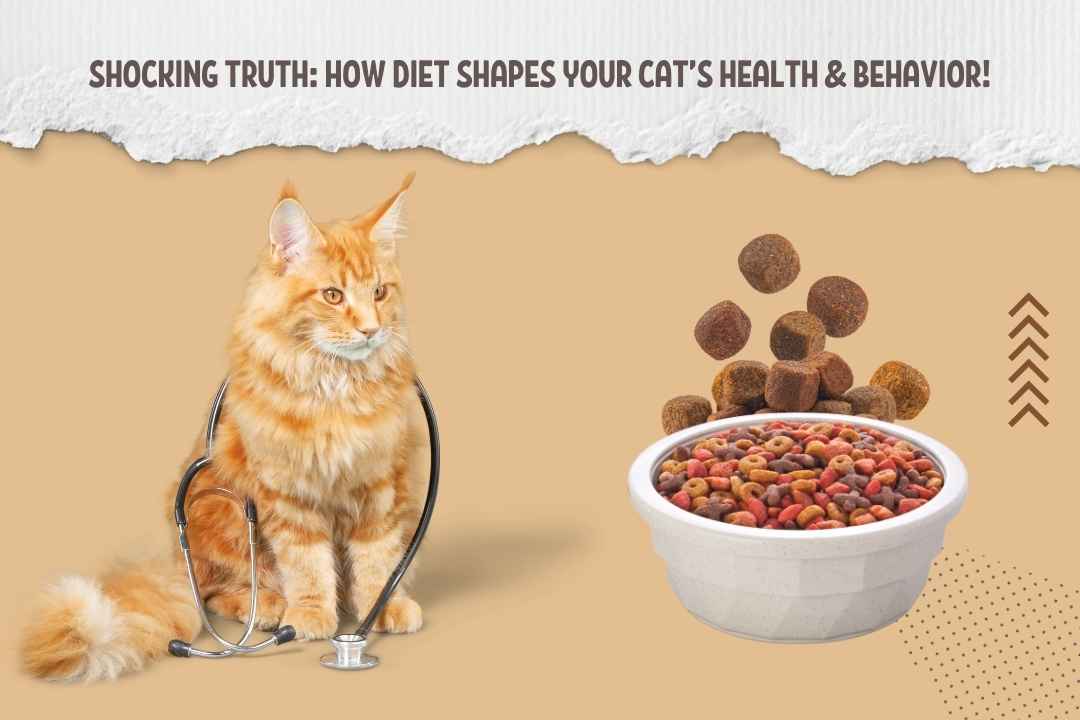Shocking Truth: How Diet on Cat Health and Behavior

A good diet plays a significant role in a cat’s health, mood, and overall behavior change. As a pet owner, it is essential to understand how different factors influence your feline’s well-being. A poor, incomplete meal can make a cat stressed, while a top-notch diet helps maintain energy and a smoothly functioning intestinal system. My four-year-old orange tabby, Pumpkin, once refused to eat his kibbles, making him misbehave for hours.
I explored different pet food options from online stores in Pakistan, like Cathouse.pk, which offer a variety of products, including supplements. After trying a superior formula, I noticed positive changes he became more enthusiastic, happy, and engaged in playing with his teenaged housemate. A veterinarian helped me figure out an optimum blend of nutrients to control his diet, ensuring he stays consistent and full of oomph. If your cat’s behavior change persists for months, it is best to explore possible causes and seek professional advice.
Medical Condition
A cat’s health can be adversely affected by an improper diet, especially after neutering. Their energy requirements change, and feeding the same portion of regular food may lead to overweight issues. Owners must provide an appropriate meal plan with the best balance of nutrients to prevent any serious medical condition. Adjusting meal sizes based on hormone shifts and consuming food suited to their needs helps maintain a pet’s well-being. Check cathouse.pk for expert advice.
Mental Health
A cat’s diet plays a big role in its mental health. Omega-3 fatty acids, especially DHA, are essential for brain health and keep your feline friend alert and responsive. Without proper nutrients, a cat may become lethargic, lose its sense of curiosity, and even show signs of depression.
Foods rich in fatty acids help maintain mental acuity and sharpness, especially in kittens. Researchers found that a well-nourished kitten learns faster and engages in problem-solving activities more effectively. A lack of key nutrients can affect sleep patterns, making your pet less active during playtime.
Interactive puzzles and treat-based games stimulate an intelligent cat’s mind. If your pet refuses food or runs to cover when it’s time for a pill, adding tasty options like pumpkin can make mealtime easier. Keeping a record of your cat’s eating habits helps track its food preferences and overall well-being.
How To Improve Your Cat’s Health and Behavior?
A protein-rich diet is essential for a cat’s health and behavior. High-quality cat food with the right nutrients can bring a positive effect on their mood and mindset. Many felines can be fussy, so offering a wide range of flavors and ingredients helps meet their needs. Avoid artificial flavoring and opt for premium brands available at an online store in Pakistan.
Feeding habits matter. A feeding schedule prevents bingeing and weight gain, which may lead to health problems. Many veterinarians advise scheduled feedings instead of free-access feeding, as it helps regulate the digestive system and maintains a healthy attitude. A balanced morning and daily serving in a clean bowl is ideal.
Healthy rewards make a difference. Treats with multiple varieties of nutritional values can be used as a reward for good behavior. Some supplements are also beneficial but should be prescribed by experts. Encouraging exercise alongside a structured diet will bring a positive change over the years, ensuring your cat stays active and happy in its cathouse.

